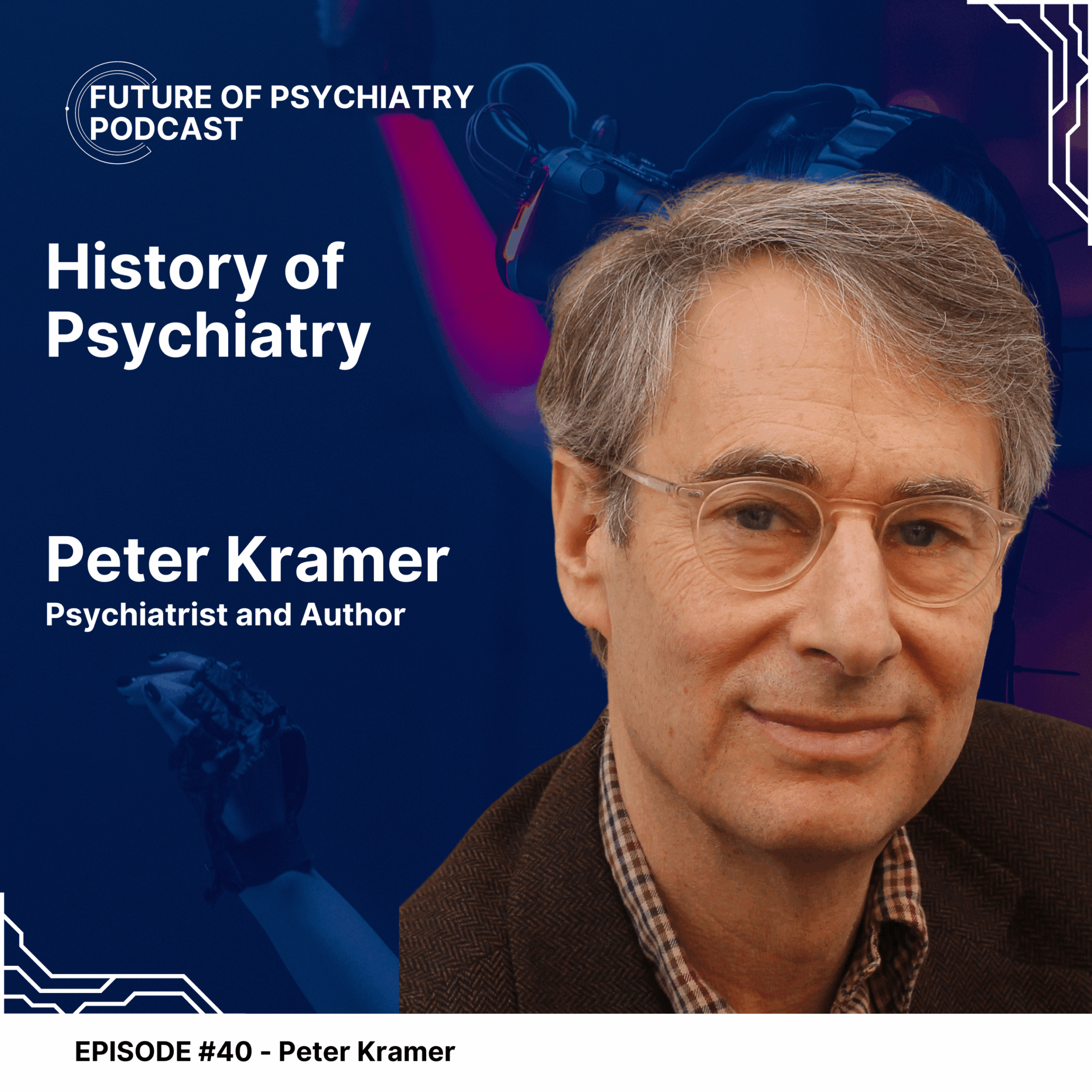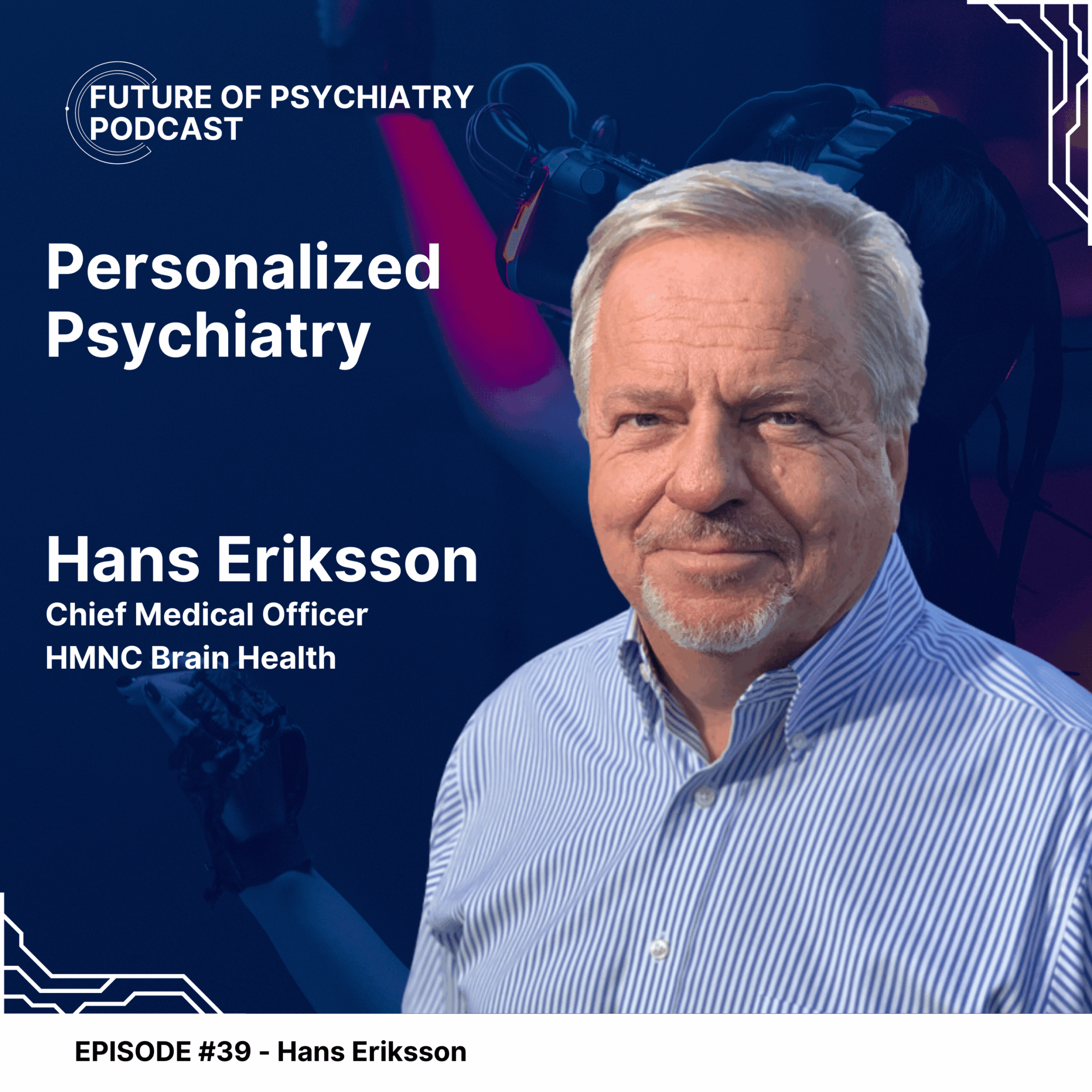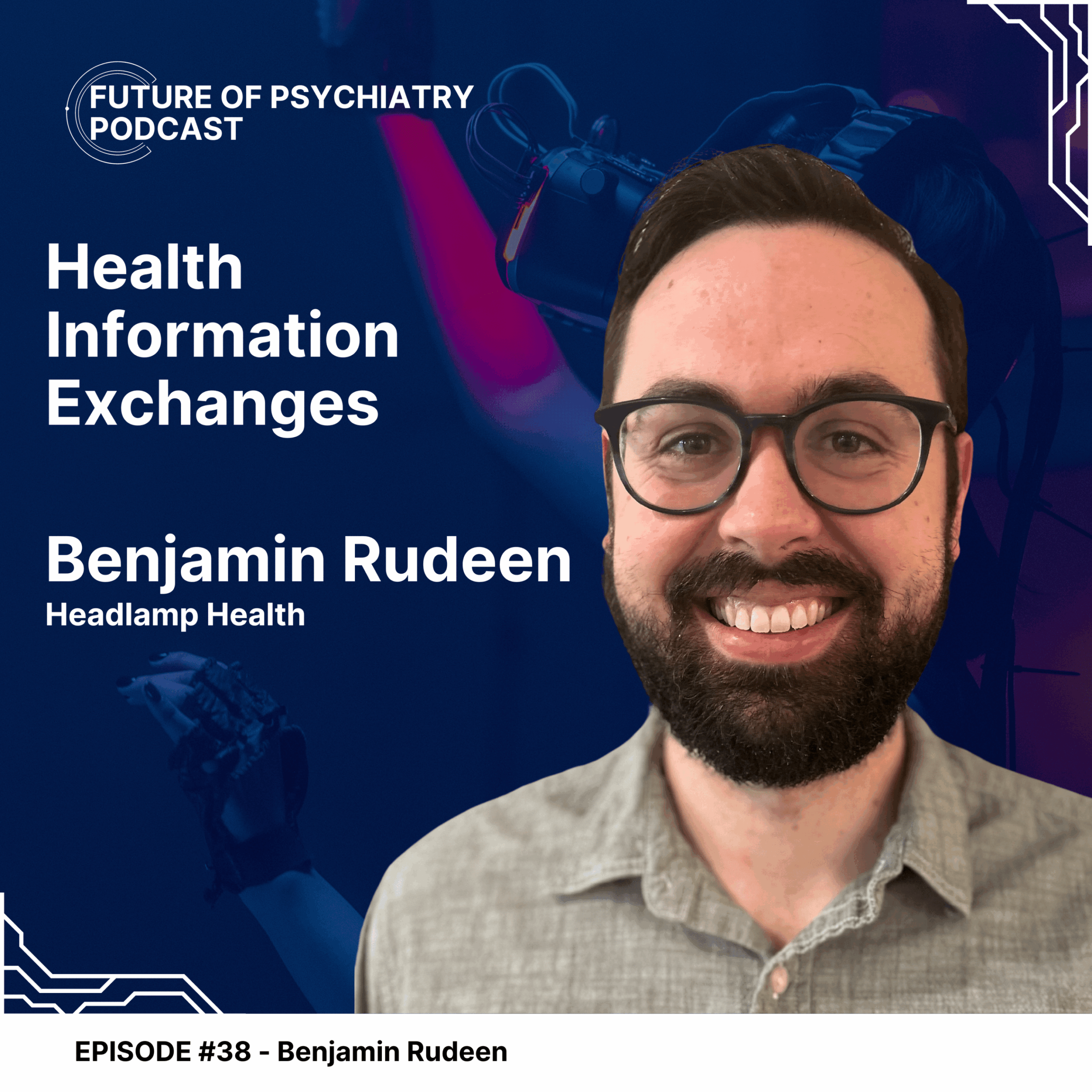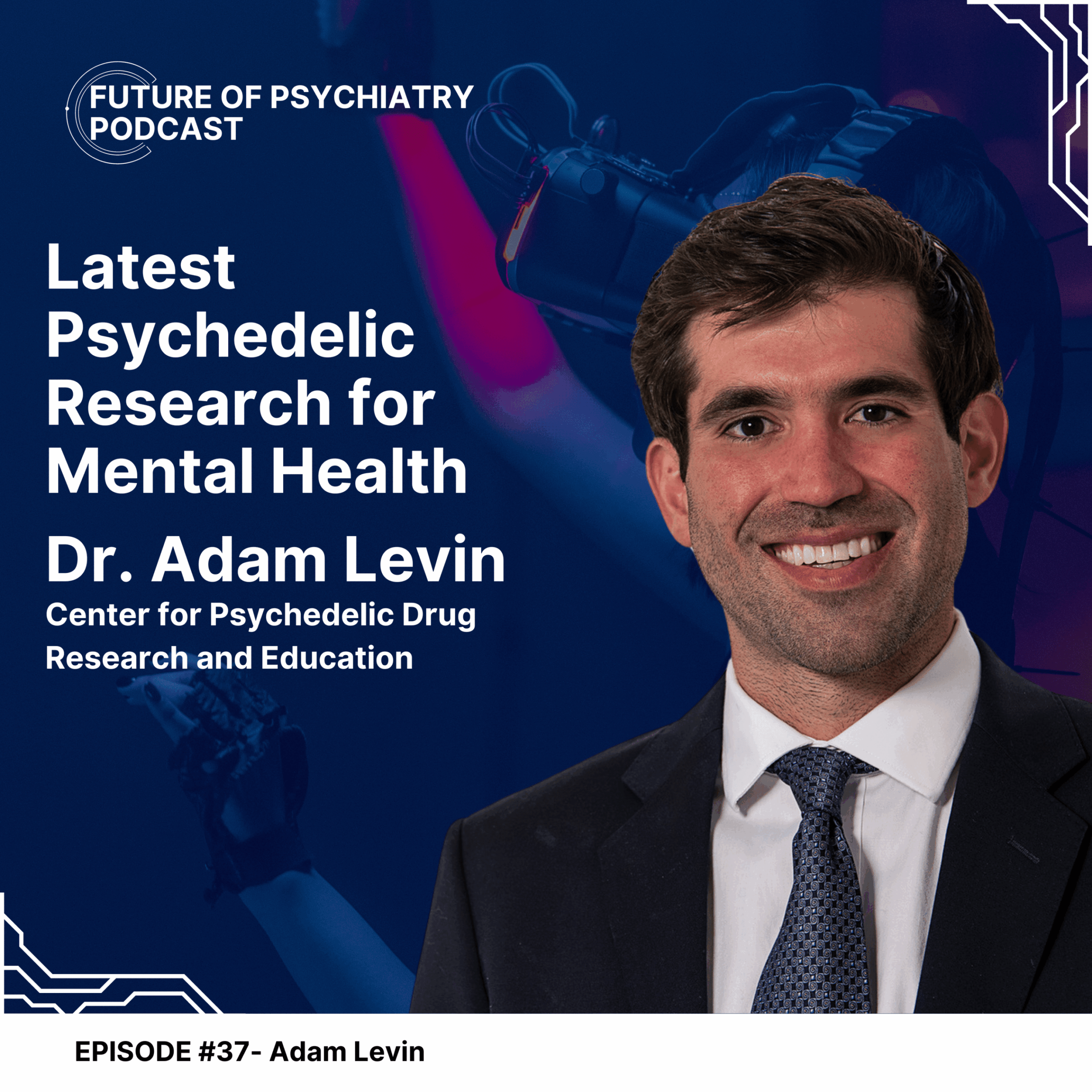#FuturePsychiatryPodcast discusses novel technology and new ideas in the field of mental health. New episodes are released every Wednesday on YouTube, Apple Podcasts, etc.
Summary
In Episode 20 of the Future of Psychiatry Podcast, Bruce Bassi dives deep into the transformative power of hypnosis with our guest, Bernhard Tewes. A licensed hypnotherapist and founder of HypnoBox, Bernard shares his personal journey from battling burnout to discovering self-hypnosis as a powerful tool for overcoming addiction and sleep disorders.
Chapters / Key Moments
00:01 Intro
01:38 What prompted you to get into hypnosis?
08:10 Other methods of entering a ‘trance’
10:31 Hypnosis for weight loss
12:03 How does hypnosis help you achieve clarity?
13:26 How effective is it compared to in person hypnosis?
’16:30 Would hypnosis work for someone who couldn’t do meditation?
19:04 How Hypnobox was created?
21:35 What were challenges in developing the Hypnobox app?
24:44 What is the relationship between the app and the user?
26:58 How can a therapist use hypnobox to augment their clinical care?
28:24 AI and new tecnologies
30:45 Getting more people to use hypnosis
32:28 What are misconceptions of hypnosis?
34:45 Personal changes after mastering the practice of self hypnosis
37:53 Reflection on self-medication
39:18 Self-medicating hypothesis of addiction
41:27 Closure & final thoughts
Table Of Contents
2
- The Transformative Power of Hypnotherapy
- The Mechanics of Hypnosis
- Self-Hypnosis and Its Benefits
- Hypnotherapy for Clarity and Focus
- The Role of Hypnosis in Therapy
The Transformative Power of Hypnotherapy
Bernhard Tewes journey into hypnotherapy began in a moment of personal crisis. As an event manager, he faced burnout, sleeping disorders, and depression, leading him to a state of desperation. His struggle with smoking, a habit notoriously difficult to break, seemed insurmountable until he met a hypnotist. This encounter was pivotal, revealing the significant role the subconscious mind plays in habit formation, associating certain behaviors with stress relief or coping mechanisms.
The impact of hypnotherapy on Tewes was immediate and profound. After just one session, he quit smoking, a change that sparked a deep interest in the workings of the subconscious mind. This interest led him to explore the science behind decision-making, where it’s believed that the subconscious governs a vast majority of daily choices. This realization propelled him towards a career in hypnotherapy, aiming to harness this power for positive personal transformation.
The Mechanics of Hypnosis
Hypnosis operates by inducing a trance-like state, akin to the moments just before sleep or upon waking. In this state, the subconscious mind becomes more receptive to suggestions. These suggestions, when aligned with a person’s desires and will, can be integrated into their subconscious, effecting change.
However, inducing this state can be challenging, especially for individuals experiencing stress or anxiety. HypnoBox addresses this by offering relaxation techniques and extended inductions to facilitate the entry into a trance-like state. Contrary to popular belief, the team at HypnoBox maintains that everyone is susceptible to hypnosis, with children being even more receptive due to their less developed critical faculties.
Self-Hypnosis and Its Benefits
Self-hypnosis is a supportive tool, complementing traditional therapy. It’s particularly effective in fostering long-term changes such as enhancing self-esteem or aiding in weight loss, which require consistent effort. Additionally, it can help modify behaviors like emotional eating, guiding individuals towards healthier choices.
HypnoBox specializes in creating personalized self-hypnosis sessions, focusing on various goals such as adopting healthier diets or reducing alcohol and sugar intake. The primary focus, however, is on altering the underlying beliefs that drive eating and lifestyle habits. Regular use of self-hypnosis can lead to significant, lasting changes in one’s life.
Hypnotherapy for Clarity and Focus
Hypnotherapy is increasingly recognized for its ability to bring clarity by accessing the subconscious mind. It helps uncover the emotional roots of various issues, facilitating a deeper understanding of oneself.
HypnoBox distinguishes itself with a diverse team of experts, including specialists in child hypnosis and hypnobirthing. The platform offers various methods to induce trance, such as active alert hypnosis or flow states achieved through movement
The Role of Hypnosis in Therapy
Hypnotherapy complements traditional therapy by focusing on the subconscious. It employs positive suggestions and visualizations to reprogram the mind towards specific goals. While it’s not a replacement for professional therapy, it serves as a valuable tool for personal development and can be used independently.
HypnoBox’s approach diverges from traditional methods by emphasizing positive reinforcement and goal-oriented visualizations. This method is designed to program the subconscious mind, steering it towards achieving specific objectives.
Resources
To learn more about Bernhard Tewes and Hypnobox please click here:
To learn more about Bernhard Tewes and Hypnobox please click here:
https://www.facebook.com/HypnoBoxApp
https://www.linkedin.com/company/hypnobox-gmbh
https://www.linkedin.com/in/bernhardtewes
https://www.instagram.com/hypnoboxapp




